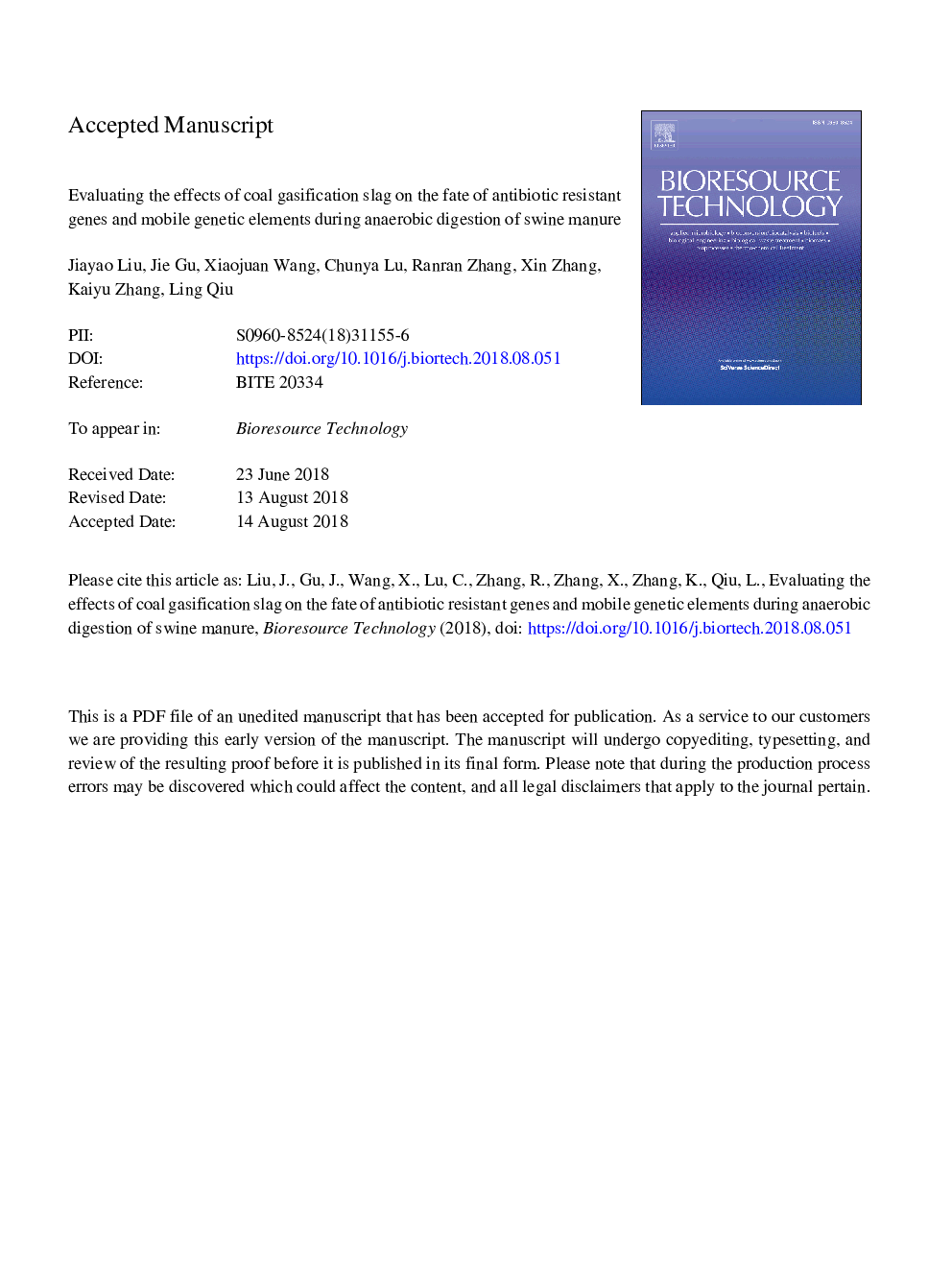| Article ID | Journal | Published Year | Pages | File Type |
|---|---|---|---|---|
| 10226154 | Bioresource Technology | 2019 | 39 Pages |
Abstract
Coal gasification slag (GS) is an industrial solid waste with a highly developed pore structure, which can be used in anaerobic digestion (AD) to remove antibiotic resistance genes (ARGs) due to its structure, thereby utilizing this waste resource. This study evaluated the effects of three GS levels (0, 5, and 10â¯g/L) on the abundances of ARGs, mobile genetic elements, and the bacterial community. With GS added at 10â¯g/L, the removal rates for ARGs (dfrA7, sul2, tetW, ermF, and ermQ) were 24.81-90.48% after AD, and the removal rate for ISCR1 was 95.4%. In addition, 10â¯g/L GS was more effective at reducing the abundances of potential human pathogens. The variations in ARGs may have been affected by the succession of the microbial community. The results of this study demonstrate that supplementation with 10â¯g/L GS is more useful for reducing ARGs during AD.
Related Topics
Physical Sciences and Engineering
Chemical Engineering
Process Chemistry and Technology
Authors
Jiayao Liu, Jie Gu, Xiaojuan Wang, Chunya Lu, Ranran Zhang, Xin Zhang, Kaiyu Zhang, Ling Qiu,
